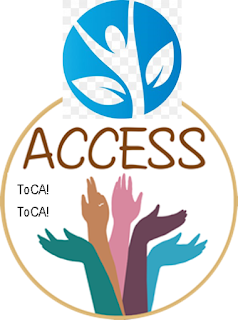Yesterday, Monday, 03 May 2021, was “World Press Freedom Day” as declared by UNESCO, and some Filipinos celebrated the day specially because Filipina Maria Ressa, CEO of Rappler, won the “World Press Freedom Prize 2021.” Miss Maria has been practicing “Journalism Without Fear Or Favor.”
(“Without Fear Or Favour” image[1] from Bush Radio)
A journalist myself, with 45 years experience, I did not celebrate because I know the award will attract even more ill-will towards the lady, who believes she is trying hard to do good for her country. Note that the logo-type is rendered such that it shows the opposite of what it is saying: “Journalism with fear or favor.” Ironically, in practice that is what the current journalism is – unfortunately.
Prize or no prize, my journalism is of Agri-Culture – the Science of Agriculture serving the hierarchy of needs of the Filipino people in their varied native cultures, plural, such as Aeta, Bisaya, Ibanag, Ilocano, Isneg, Muslim, Pampango, Pangasinense, and Tagalog.
And so am I trying hard to do good for Miss Maria’s country, which happens to be mine, following the UNESCO slogan: ”Information As A Public Good.” Actually, Miss Maria handles information differently, limiting the public good to exposing the private bad!
Her journalism is what I call “Truth Journalism“ while I call mine “THiNK! Journalism.” And yes, we are pursuing our works in 2 entirely different fields – she in Politics and I in Agriculture. She is cultivating “Api-Culture,” where “apí” is a Filipino word meaning “abused, maltreated or oppressed.” And I am cultivating “Agri-Culture,” where agri is abbreviation for “agriculture” and separately “culture” refers to us Filipinos as a culture within which our practice of agriculture must fit in a sustainable way and help us grow in knowledge and justice as a country.
Inevitably, Miss Maria’s practice of apí-culture leads to a clash of wills and, with politicians, that will is strengthened by position and influence both overt and covert. You can’t win if your “foe” has political power and uses it to the utmost as s/he may think necessary. And s/he is not awed by the power emanating from a World Press Freedom Prize.
In that case, I will never win the UNESCO World Press Freedom Prize or some such thing because I practice my journalism with the voiceless and never will win public attention because I follow the careful steps of Secretary of Agriculture William Dar and not try to find fault with any of the policies and procedures of the Department of Agriculture (DA) emanating from his “Servant Leadership” as he himself terms it. Nobody is perfect!
Yes, my journalism for Agri-Culture is based on the UNESCO slogan, “Information As A Public Good” (image[2] from UNESCO). I call it THiNK! Journalism, where I start with the question, “Is it true?” and proceed thus:
If True, is it Helpful?
If Helpful, is it Inspiring?
If Inspiring, is it Necessary?
If Necessary, is it Kind?
If Kind, go write ahead!
I am always avoiding the private bad and looking for the public good!@517










